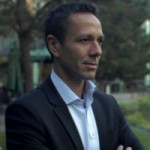Gianpiero  Petriglieri, an Associate Professor of Organizational Behavior at INSEAD, trained as a psychiatrist before becoming an award-winning teacher and researcher whose work bridges the domains of leadership, adult development and experiential learning. He is also a frequent Harvard Business Review and Wall Street Journal blogger, and a fast speaking – and thinking – interviewee. He talked with Thinkers50 co-founder, Stuart Crainer
Petriglieri, an Associate Professor of Organizational Behavior at INSEAD, trained as a psychiatrist before becoming an award-winning teacher and researcher whose work bridges the domains of leadership, adult development and experiential learning. He is also a frequent Harvard Business Review and Wall Street Journal blogger, and a fast speaking – and thinking – interviewee. He talked with Thinkers50 co-founder, Stuart Crainer
What is particularly striking about your resume is the move from psychiatry into management academia business schools. It seems an unusual leap.
Lots of people ask me that, why spend ten years training, do all this work and then change career? But personally I don’t feel I have changed direction that much.
I have always had a passion for understanding and assisting the unfolding of human lives in social contexts. At the broadest level, all my work — whether it is research, writing, teaching, coaching, consulting, and in the past, my practice as a psychotherapist — has gravitated around two endeavors. The first is to examine how people’s history and aspirations, and the dynamics of groups and social systems they are in, affect the way they think, feel and act in personal and professional roles. I am interested in how those forces, consciously and unconsciously, shape human being as well as human becoming. The second is to help people take their experience seriously without however taking it too literally, so they can make new meaning out of their experience, and develop more options for dealing with it. Continue reading →
 Ron Ashkenas and
Ron Ashkenas and Amy McDougall
Amy McDougall



![iStock_000008828650Small[1]](http://www.issg.net/wp-content/uploads/2014/10/iStock_000008828650Small1-150x150.jpg)
 by Carolyn O’Hara
by Carolyn O’Hara
